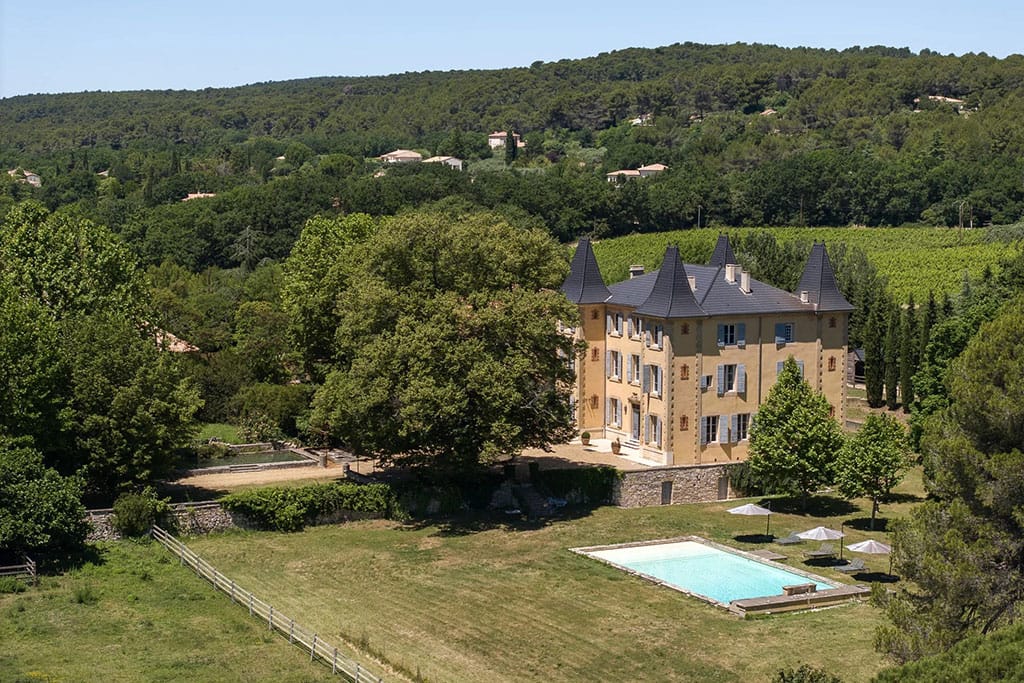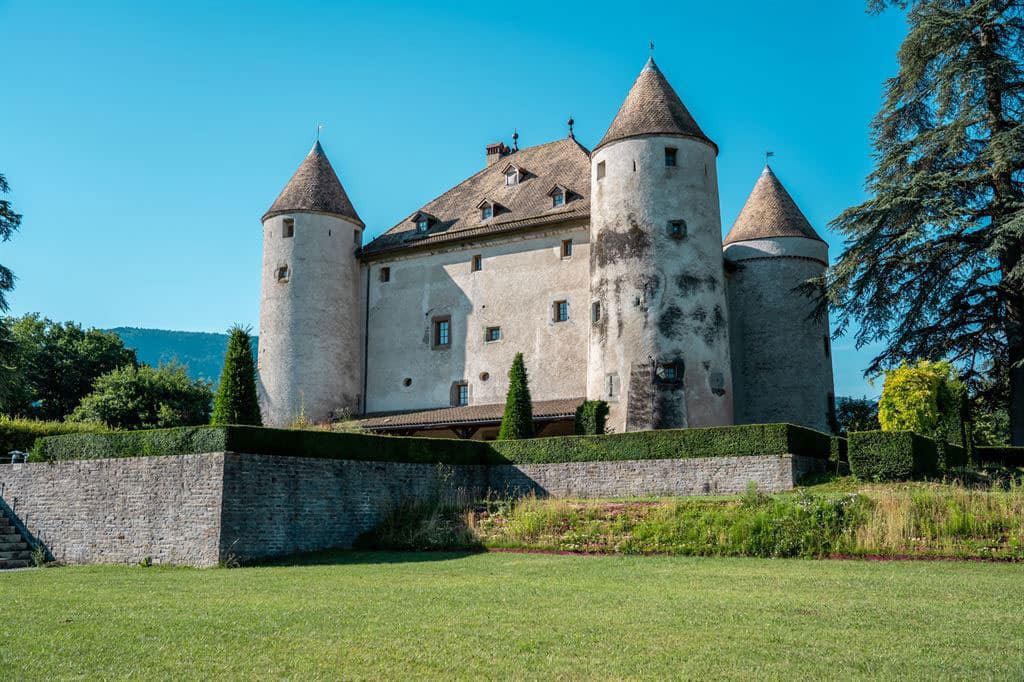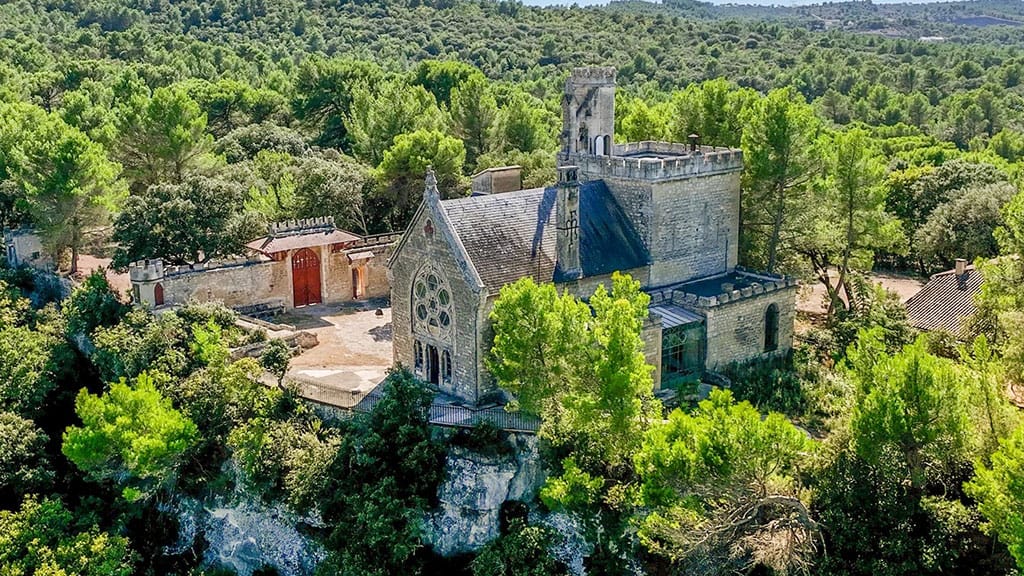At one time or another, many people may have dreamed of buying a chateau in France and starting a new chapter in their life. And while luxury French chateaux are most certainly exclusive, they don’t have to remain a fantasy.
Imagine living in a home with over 10 bedrooms, a swimming pool next to a golf course or tennis courts from which to while away a free afternoon. Owning your own chateau is the epitome of having a luxurious French lifestyle. Beyond luxury, owning a château means embracing French culture and heritage, becoming part of a tradition that values history, art, and local customs.
There are all types of chateaux available depending on your personal taste, preferred lifestyle and budget, too. Many feature unique historical elements such as a private chapel, grand ballrooms, or ancient wine cellars. Additionally, you can opt to turn your chateau into a business-generating property, making it even more of a wise investment.
In this guide, we’ll explain how to find and buy a luxury French chateau or historic French castle based on your budget, location preferences, lifestyle, business plans and more, while appreciating their historical significance.
Table of Contents
What To Consider When Buying a Chateau in France
From how much the chateau will cost to where you want to live and whether or not tourists frequent the area, here are the top considerations when buying a chateau in France. It’s important to compare different locations, price points, and features to find the best fit for your needs. Additionally, understanding the unique aspects of the French chateau market, including pricing trends, availability, and seasonal fluctuations, can help you make an informed decision.
Budget
Even though it’s exciting to find a home that you love, don’t let the idea of a perfect chateau tempt you to go over budget. Knowing your budget before you start your search will allow you to focus on the areas and homes that are plausible for you.
When budgeting for an international property purchase, it’s important to understand currency exchange rates, as fluctuations can significantly impact the final cost.
Aside from the purchase price, your home-buying budget should also include factors like:
- Legal fees
- Notary fees
- Renovation costs
- Stamp duty
French mortgages are available to foreign buyers and can be a useful way to finance your château purchase, with various loan-to-value ratios offered by international and specialist lenders.
Keep in mind that you’ll need to put a deposit down on the home when you sign the initial contract, called the Compromis de Vente.
Next, let’s break down some of the specific costs of buying a French chateau.
Purchase Price
French chateaux have widely varying prices that are based on the property’s condition, size, and location. A French chateau may cost just a few hundred thousand euros, or it could cost as much as millions of euros.
While many of the chateaux we list at Home Hunts are in the several million euros price range, we also have a handful of chateaux under 995,000 euros. You can use our property search page to set your maximum budget and filter by property type.
Turnkey vs. Renovations Needed
Do you want a chateau that’s already renovated and move-in ready, or would you rather renovate the property yourself to balance preserving its historic character with adding modern comforts?
Some buyers want to purchase a home, move in and have it set up within days. Others would love a renovation project that they can work on over the course of a few months or years, designing the home of their dreams to meet their every whim while integrating modern comforts and energy efficiency where possible.
While properties in need of improvements are often priced lower than turnkey properties, don’t underestimate the cost of renovations. A notably low purchase price can be offset by high renovation costs. It’s common for restoration projects to cost around €300,000, but luxury estates can cost into the millions for renovations. Additionally, older buildings may require different fixtures and materials than a new home would, and you may need a specialist contractor who can work with those specific materials. Improving energy efficiency in historic châteaux can be particularly challenging, as it requires careful planning to upgrade insulation, heating, and windows without compromising the property’s original features.
Make sure to work with a team of experts who can give you realistic quotes so you can decide if the renovations are affordable. You may need to talk to architects, builders, electricians, engineers, plumbers, roofers, and more to understand the extent of the work that’s needed. As part of the renovation process, consider energy efficiency upgrades that respect the building’s heritage while reducing long-term operating costs.
If you want the best of both worlds, consider purchasing a turnkey property and then making small changes to it when you have the free time. For example, you may be able to find a chateau that has finished or unfinished attic space that you can eventually turn into extra rooms. You can also look for property with outbuildings, like stables and barns, that you can convert into additional living or work space. Some homes will even have already-approved zoning, so you can start expanding as soon as you like.
Ongoing Costs
Maintaining a French chateau year after year can also come with a high price tag. This is why your one-time budget for purchasing the property isn’t the only budget you need to work out.
In addition to utility bills, which can be high since chateaux are so large, other ongoing costs of owning a chateau include cleaning, landscaping, painting, and repairing damage. Pests and weather, for example, can wreak havoc on any home, but when you own a chateau, the damage can be on a grander scale — which means it will cost more to fix.
It’s smart to budget 1% to 3% of the property value for annual expenditures like groundskeeping, utilities and taxes.
Location
Location and price are closely related when searching for a French château. The region not only influences the style of chateaux available, but also costs. Here are a few examples:
- As you head south, toward the Mediterranean and warmer climates, home prices will increase.
- Luxury French chateaux in the Paris area (within 1-2 hours of the city) will cost a premium.
- Provence does not have a lot of chateaux, which means the ones that are there come with a high price tag since they’re so rare.
- Other in-demand areas for chateaux include Bordeaux (specifically vineyard property, with many estates featuring existing vineyards that offer both scenic beauty and potential income) and Dordogne.
To narrow down your options, consider how large a chateau you want and how much land you need; the type of lifestyle you’re after (a vibrant city versus a quiet suburb or countryside, for example); how close you need to be to certain amenities; and the type of garden or landscaped grounds you desire. Then work with an property agent to explore your options in those areas.
Aesthetics, Features and Style
Ask yourself these questions to start drilling down to what your perfect property would look like:
- How many bedrooms do you need?
- How many bathrooms do you need, and should any of those be en-suites?
- Are there any specialty rooms you want, like a fitness studio, spa area, library, office, or wine cellar?
- What type of landscaping or property features would you like? Chateaux may have bridges, moats, exotic gardens, ponds or parkland as part of their property.
Once you start researching chateaux in France, you’ll be amazed at how many different types there are. For example, as you head south toward the Mediterranean, the chateaux are more rustic in both construction and design, while the chateaux closer to Paris are more traditional.
Long-Term Goals
Next, consider how you plan on using your new chateau.
While many buyers dream of moving their family into a chateau, you may want your home to double as a commercial property. Combining your new home with a fulfilling career is what some people consider to be the peak of happiness. You can set up your chateau as a tourism business, like a B&B, hotel or wedding venue, for example. Transforming châteaux into wedding venues is increasingly popular, but it’s important to ensure proper licensing and regulatory compliance for such events.
If you want to do this, make sure you choose to live in an area that has a lot of tourism. Your chateau property may also include outbuildings and additional space, such as:
- Apartments or independent houses to rent short-term
- Shops for selling artisan and local items
- Catering facilities to accommodate events, where the property’s history can be a unique selling point
- Licensed taverns for a nightlife business
- Natural space for a fishing area, campsite or golf course
When considering available properties, keep in mind that some châteaux are still occupied, which can affect purchase considerations and transition timelines.
Another option is to buy a vineyard estate where you can make and sell wine, hold tours and tastings, and host and accommodate small groups overnight.
Understanding French Property Laws
Buying a French chateau is a dream for many people, but you’ll want to get familiar with French property laws before you make such a big purchase. France takes protecting its historic properties seriously, from grand medieval castles to beautiful chateaux in the Loire Valley, and these laws are there to keep the country’s cultural treasures safe for future generations.
One thing you’ll definitely want to know about is whether your chateau is classified as a “monument historique.” This special status is given to properties that have exceptional historical or architectural value, and it comes with both perks and responsibilities. If you own a historical monument, you might get some tax breaks, but you’ll also need to follow strict rules when it comes to renovations or changes. For example, any work you do on a classified property, whether you’re restoring beautiful gardens or updating the interiors, will often need approval from heritage authorities to make sure you’re preserving French heritage properly. This is especially important in areas like the Loire Valley or Dordogne, where many chateaux and castles are protected as historical monuments.
Another important step you’ll go through is the “compromis de vente,” which is basically a preliminary contract that spells out all the details of the sale. This document is legally binding and covers everything from how much you’re paying to any special conditions of the sale. If you’re a foreign buyer, you’ll want to work with a trusted agent or lawyer who knows French property laws inside and out to review the compromis de vente and protect your interests throughout the whole process.
When you own property in France, you’ll have full rights over your new home thanks to something called “droit de propriété.” But with these rights comes the responsibility of keeping your property up to local standards. This means you’ll pay annual property taxes called taxe foncière, and you’ll need to make sure any renovations or improvements, whether to the main house, outbuildings, or those extensive gardens, follow all the preservation rules. The costs of maintaining a big estate, especially one with acres of land or a tree-lined drive, can really add up, so you’ll want to factor these into your long-term budget.
You’ll also find that different regions have their own rules. For instance, areas like Charente Maritime or Lot et Garonne might have specific regulations about historic buildings or how you can use the land. You’ll want to do thorough research, including checking the property’s history and any existing restrictions, so you don’t get any nasty surprises after you’ve bought the place.
To handle all these complexities, international buyers should definitely work with bilingual professionals who specialise in French chateaux and historic properties. An experienced agent or lawyer can walk you through every step, from checking legal documents to making sure the ownership transfer goes smoothly. With the right support and a good understanding of French property laws, you can confidently buy your perfect property, whether it’s a stately castle in Provence or an elegant chateau surrounded by beautiful gardens near Paris, and start your new chapter in France, keeping both the elegance and the legacy of French heritage alive.
Viewing and Buying Your French Chateau
Even if you don’t live in France, it’s a good idea to plan at least one trip so that you can view the properties you’re most serious about. Give yourself a minimum of one hour for each viewing.
For more information on handling international transactions and currency exchange, visit a Currency Exchange website.
Don’t hesitate to ask a lot of questions, either. When owners prepare their home for a viewing, they take a lot of time to make sure the interior and exterior look their best. They expect serious buyers to inspect the entire property in detail and to ask plenty of questions.
Once you’ve found a home you love, you’ll make a formal offer to the owner. If accepted, the preliminary sales agreement is drawn up and signed, followed by a cooling-off period and a series of due diligence checks and surveys. During the last stage, the final deed is signed, the balance is paid, and the home officially becomes yours.
You can read about the French property buying process in depth in our complete guide.
Working With a Professional Buyer’s Agent
With such a broad range of French chateaux for sale, you’ll want professional guidance to find the one that’s a great match. You can search our website and browse our listings, access valuable resources, and contact our team for assistance throughout the purchasing process. Working with a buyer’s agent with familiarity in the area is key to finding the chateau that’s right for you. Our property agents are able to select beautiful, luxury French chateaux based on your specific search criteria.
In addition to being familiar with the area and property types available, our bilingual consultants are able to navigate preservation rules, complex paperwork and contract negotiations. For more information, speak with one of our consultants by calling +33 (0)970 44 66 43.







